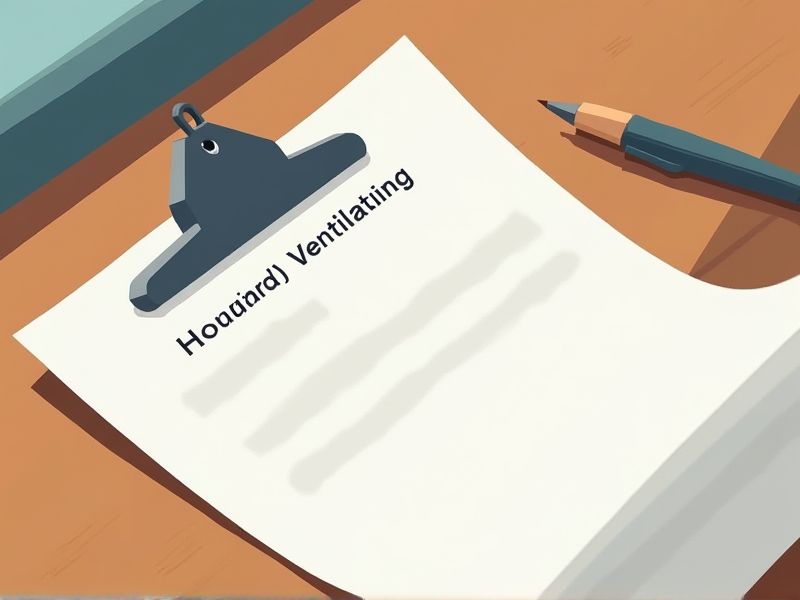
The demand for efficiency, safety, and reliability in HVAC systems causes a significant focus on technician qualifications. Certifications ensure these technicians possess the necessary skills to adhere to industry standards and regulations. Regulatory bodies mandate certifications to facilitate compliance with environmental and safety protocols. Here are some important certifications you may need as an HVAC Technician.
EPA 608 Certification (Type I, II, and III)
EPA 608 Certification is required for HVAC technicians because it ensures they can properly handle refrigerants, which helps prevent environmental harm. Type I certification allows technicians to service small appliances, which involve specific refrigerant recovery procedures. Type II certification covers high-pressure systems, crucial for technicians dealing with most commercial systems. Type III certification is necessary for low-pressure appliances, ensuring proper handling and minimizing leaks of these systems.
NATE HVAC Technician Certification
The NATE HVAC Technician Certification ensures that technicians possess a standard level of knowledge and competence in working with heating, ventilation, and air conditioning systems. Due to increased efficiency demands, certified technicians have been shown to complete tasks more accurately, leading to fewer system call-backs. Homeowners and businesses often prefer or require NATE-certified technicians, as the certification acts as a benchmark for quality and reliability. Certified technicians typically benefit from greater job opportunities and higher potential earnings compared to non-certified counterparts.
HVAC Excellence Certification
HVAC Excellence Certification validates a technician's proficiency in industry standards, enhancing job opportunities and career advancement. This certification ensures the technician possesses the necessary skills and knowledge for installation and maintenance tasks, reducing the risk of faulty systems. Clients and employers tend to trust certified professionals more, leading to increased consumer confidence in service quality. Technicians with certification may command higher salaries as they demonstrate a commitment to ongoing education and industry best practices.
RSES (Refrigeration Service Engineers Society) Certification
RSES Certification for HVAC technicians establishes a recognized standard of expertise and proficiency in the industry. It often leads to better job opportunities and potential for higher wages due to the validation of advanced skills. Safety in complex HVAC tasks improves significantly because technicians adhere to best practice standards. Customer trust and satisfaction increase as certified technicians demonstrate a commitment to quality service and continuing education.
BPI (Building Performance Institute) HVAC Certification
BPI HVAC Certification ensures technicians meet industry standards, enhancing their credibility and increasing trust among customers. The certification promotes a comprehensive understanding of energy efficiency practices, crucial for optimizing system performance and reducing energy costs. Certified technicians tend to have better job prospects and positions, often leading to higher salaries within the HVAC industry. Acquiring BPI certification reflects a commitment to professionalism and continuous learning, vital for keeping pace with technological advancements and regulatory changes.
Certified Energy Manager (CEM)
A Certified Energy Manager provides expertise in energy efficiency, enhancing the skills of HVAC technicians to optimize system performance. Desired energy savings result when HVAC systems operate more efficiently under the guidance of a CEM. Regulatory compliance becomes easier to achieve with a CEM's knowledge of energy standards and codes. Organizations benefit from the cost-effectiveness and reduced environmental impact that a CEM contributes through sustainable energy practices.
LEED Green Associate
Obtaining a LEED Green Associate credential enables Heating, Ventilating, and Air Conditioning (HVAC) technicians to demonstrate a comprehensive understanding of sustainable building practices. This knowledge equips them to work on projects that aim for energy efficiency and environmental responsibility, which aligns with increasing industry demand for green building solutions. The credential facilitates better collaboration with other professionals focused on sustainability and assists in integrating eco-friendly technologies into HVAC systems. As building certifications continue to emphasize sustainability, having LEED accreditation enhances a technician's credibility and job prospects within the green building sector.
OSHA 10-Hour Construction Safety Certification
Obtaining the OSHA 10-Hour Construction Safety Certification equips HVAC technicians with essential knowledge to identify and mitigate workplace hazards specific to the construction environment. This certification increases compliance with federal safety regulations, reducing the risk of citations and fines for employers. Enhanced safety awareness among technicians lowers the incidence of on-site accidents, which can lead to decreased downtime and medical costs. Many employers require this certification as part of their commitment to maintaining a safe work environment, influencing hiring and employment opportunities for HVAC professionals.
Certified Indoor Air Quality Professional (CIAQP)
Heating, Ventilating, and Air Conditioning Technicians require certification as Certified Indoor Air Quality Professionals to ensure the indoor environments they work on meet health and safety standards. Poor indoor air quality can lead to health issues such as allergies and respiratory problems, potentially affecting building occupants. A CIAQP provides the knowledge and skills necessary for HVAC technicians to evaluate and improve air quality effectively. Organizations increasingly demand adherence to air quality standards, and having a CIAQP can therefore boost a technician's credibility and employment prospects.
HVAC Quality Installation Technician (QIT) Certification
HVAC Quality Installation Technician (QIT) Certification ensures that technicians have the necessary skills and knowledge to perform installations to industry standards, which directly impacts system efficiency and longevity. Certified technicians are more likely to reduce energy consumption and operating costs for clients, addressing the growing demand for energy-efficient solutions in the market. The certification can minimize the likelihood of installation errors, leading to fewer callbacks and increased customer satisfaction. It helps employers differentiate their services in a competitive field, thereby potentially expanding their market share and trust from consumers.
Summary
When you obtain certifications as a Heating, Ventilating, and Air Conditioning (HVAC) Technician, your marketability significantly increases. These certifications enhance your technical skills, leading to increased job performance and efficiency. Employers often view certified technicians as more reliable and knowledgeable, likely resulting in better job security and advancement opportunities. Certification can also enable you to command higher wages, reflecting the added value your expertise brings to the organization.
